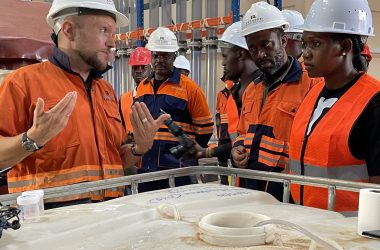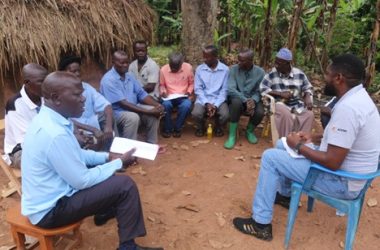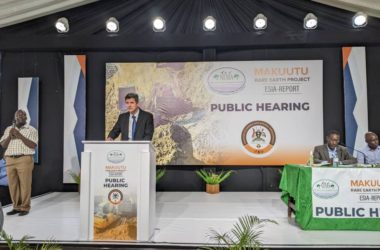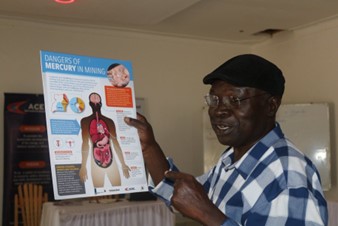Minerals and metals play a central role in the global economy and will continue to provide the raw material we need for industrial processes and daily use.
Despite enormous efforts to decouple economies from resource use, the extraction of mineral resources has increased markedly in recent decades and, over the last decade, at a faster rate than economic growth. This trend is forecasted to steadily increase in the future, as we struggle to meet the mineral resource needs of a growing global population that is expected to reach 8.5 billion by 2030, 9.8 billion by 2050 and 11.2 billion by the end of the century.
Worldwide transitions towards clean energy and electric vehicles will also accelerate the trend, as renewable energy sources require larger amounts of metals than energy production from fossil fuels.
But the extraction of these much-needed metals and minerals comes at a high price, among those damage to wildlife and ecosystems.
It doesn’t need to be so: the minerals and metals industry has, in fact, the potential to successfully support countries in achieving the Sustainable Development Goals. They can, for example, promote social cohesion, inclusiveness and economic progress among low-income countries and the most vulnerable groups of the population.
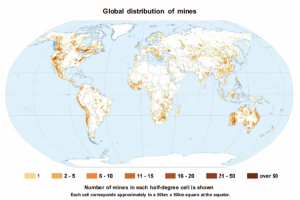
In its latest report, launched in February 2020, titled Mineral Resource Governance in the 21st Century: Gearing Extractive Industries Towards Sustainable Development, the International Resource Panel provides suggestions on how to improve the economic performance of the extractive sector while ensuring that it complies with the highest social and environmental standards at national and international levels.
The report provides guidance on how the extractive sector can establish a modern governance structure which addresses resource security and efficiency—an area of particular interest to developed nations—and satisfies the demand for continuous structural transformation, economic development and diversification in resource-exporting, developing countries.
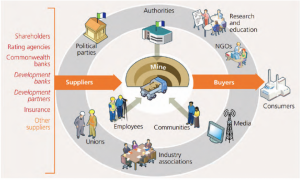
Introducing the sustainable development license to operate
In particular, the report suggests to replace the concept of “social license to operate”— which was used by mining companies to build public trust and prevent social conflict—with a new governance model, which the authors call the “sustainable development license to operate”. Unlike the social license to operate, the sustainable development license to operate is a more holistic, integrated and inclusive governance approach, through which companies can achieve positive economic, social and environmental results. The sustainable development license to operate advocates for fairer deals, equal share of benefits among stakeholders and a holistic consideration of existing regulations in the mining sector that were often not inclusive enough. It is designed to look at all the extractive industry as a whole, minimize its negative effects on environment, society and the economy, and identify opportunities for contributing to sustainable development.
Its implementation is a shared responsibility of all stakeholders along the complex, transnational value chains.
The report also investigates artisanal and small-scale mining and development minerals sectors which are an important source of livelihoods for marginalized populations, often overlooked by policymakers.
National and international measures are needed
Understanding the necessity for broader actions, the report contains a list of key recommendations for implementation at both national and international levels.
The International Resource Panel strongly believes that effective work at national level with broad and inclusive involvement of all stakeholders including “host and home” country governments, the international community, mining companies and civil society organizations should lead to the adoption of a strategic development plan. The plan must contain targeted actions for the Sustainable Development Goals and define performance standards.
In order to facilitate its implementation, the International Resource Panel suggests including mining laws and regulations in the plan, which enshrine the principles of consultation, transparency and reporting as well as recognize and promote the rights of local populations.
The International Resource Panel recommends for countries to establish three core public institutions—an environment directorate, a mining directorate and a geological survey—to promote and regulate the development of mines and metals industries.
At international level, the report advocates for creating an International Minerals Agency to improve international coordination mechanisms, or creating an international agreement to coordinate and share data on economic geology and mineral demand needs, and promote transparency on impacts and benefits, among other things.
To learn more about the International Resource Panel’s new proposed governance framework in the extractive sector, the Sustainable Development License to Operate, feel free to download the full and summary reports in English, as well as factsheets showcasing the key conclusions in all six UN languages.
The International Resource Panel was launched by the United Nations Environment Programme (UNEP) in 2007 to build and share the knowledge needed to improve our use of resources worldwide. The Panel consists of eminent scientists, highly skilled in resource management issues. Their reports distil the latest scientific, technical and socio-economic findings around global resource use. They provide advice and connections between policymakers, industry and the community on ways to improve global and local resource management. The Panel includes scientists and governments from both developed and developing regions, civil society, industrial and international organizations. Its goal is to steer us away from over consumption, waste and ecological harm to a more prosperous and sustainable future.
This article was originally posted on the UNEP website


